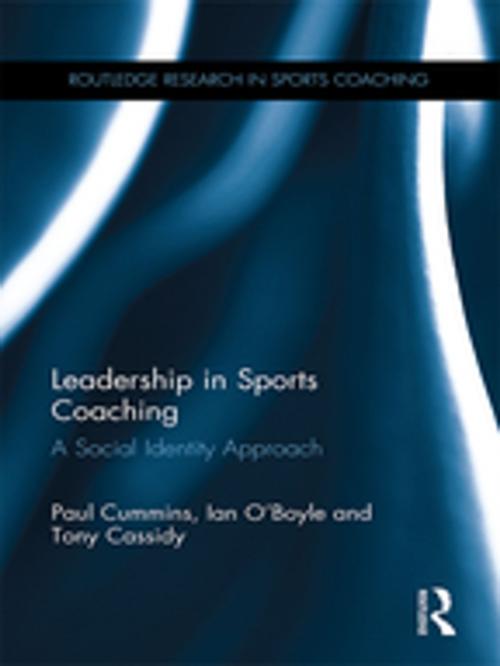Leadership in Sports Coaching
A Social Identity Approach
Nonfiction, Sports, Reference, Sports Psychology, Business & Finance, Management & Leadership, Leadership| Author: | Paul Cummins, Ian O'Boyle, Tony Cassidy | ISBN: | 9781351971751 |
| Publisher: | Taylor and Francis | Publication: | July 14, 2017 |
| Imprint: | Routledge | Language: | English |
| Author: | Paul Cummins, Ian O'Boyle, Tony Cassidy |
| ISBN: | 9781351971751 |
| Publisher: | Taylor and Francis |
| Publication: | July 14, 2017 |
| Imprint: | Routledge |
| Language: | English |
The professionalisation of sports coaching has demanded higher standards of leadership in order to improve performance and effectiveness. This book focuses on leadership in sports coaching, exploring key concepts and principles underpinned by a presentation of new empirical research. Placing social identity theory at its centre – a theory not previously applied to sports coaching – this book provides students and researchers with a powerful tool for understanding the complex social dynamic that is the coaching process.
Its chapters cover all the central aspects of sports coaching, including leadership style, measuring effectiveness, motivation, confidence and team self-esteem. Chapters explore different coaching environments to investigate the extent to which social identity impacts on coaching and leadership. A ground-breaking contribution to this field of research, this book demonstrates the significance of social identity theory in sport for athletes, coaches and leaders.
Leadership in Sports Coaching: A social identity approach is an illuminating read for any student or researcher with an interest in coaching theory, coaching practice, sport psychology, sport leadership or sport management.
The professionalisation of sports coaching has demanded higher standards of leadership in order to improve performance and effectiveness. This book focuses on leadership in sports coaching, exploring key concepts and principles underpinned by a presentation of new empirical research. Placing social identity theory at its centre – a theory not previously applied to sports coaching – this book provides students and researchers with a powerful tool for understanding the complex social dynamic that is the coaching process.
Its chapters cover all the central aspects of sports coaching, including leadership style, measuring effectiveness, motivation, confidence and team self-esteem. Chapters explore different coaching environments to investigate the extent to which social identity impacts on coaching and leadership. A ground-breaking contribution to this field of research, this book demonstrates the significance of social identity theory in sport for athletes, coaches and leaders.
Leadership in Sports Coaching: A social identity approach is an illuminating read for any student or researcher with an interest in coaching theory, coaching practice, sport psychology, sport leadership or sport management.















